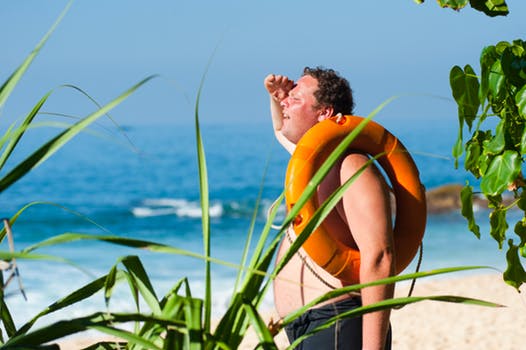Orlando, Fla.— The summer is about to officially begin on June 21st, although for us in Florida it’s been around for a while already. You’ve probably heard in the news’ weather section, about the heat index.
They keep us well informed on a daily basis and for very good reasons. One of the health risks of a high heat index could be a heat stroke.
Heat-related illnesses risks are increased in line with a heat index, above ninety degrees.
The heat index is calculated as a measurement of how hot you feel when air temperature and humidity are combined. A humidity higher than 60% can obstruct the evaporation of sweat which in turn makes it more difficult for your body to cool itself, therefore becoming a risk to your health. During heat waves you must be particularly vigilant of the heat index and try indoor as much as possible, because full exposure to sunshine during a heat wave can increase your heat index by 15 degrees.
To give you an idea of how dangerous it could be, a heat stroke can even cause damage to the brain and other internal organs.
PEOPLE OVER AGE 50 ARE AT HIGHER RISK because they adjust to heat more slowly than other people— you could progressively start feeling heat cramps, fainting or heat exhaustion — but you could experience one even without any of these signs. If your body has reached a temperature of 104º you may start feeling some of the most common symptoms of a heat stroke which include nausea, seizures, confusion, disorientation and sometimes loss of consciousness or coma.
Other symptoms may include:
- Throbbing headache
- Dizziness and light-headedness
- Lack of sweating despite the heat
- Red, hot, and dry skin
- Muscle weakness or cramps
- Nausea and vomiting
- Rapid heartbeat, which may be either strong or weak
- Rapid, shallow breathing
A prolonged exposure to high temperatures combined with dehydration can make your body’s temperature control system to collapse, and cause a heat stroke.
What you should do to prevent it
- When the temperatures are very high, you should wear light colored, loose-fitting clothing.
- Trying to stay indoor in an air conditioned environment as much as possible is where you should begin.
- If possible, shift your time outdoors to the coolest times of the day, either early morning or after sunset.
- Avoid dehydration taking at least eight glasses of water and plenty of liquids.
- Protect your skin wearing a 30+ SPF sunscreen.
- Avoid fluids containing caffeine or alcohol, which instead of hydrating you, they can make you lose even more fluids.
- You must check with your doctor if your health conditions and medications are likely to affect your ability to cope with extreme heat and humidity.
If you suspect that someone has a heat stroke, immediately call 911 or transport the person to a hospital. Any delay seeking medical help can be fatal. Do not use ice for older patients, young children, patients with chronic illness, or anyone whose heat stroke occurred without vigorous exercise. Doing so can be dangerous.

